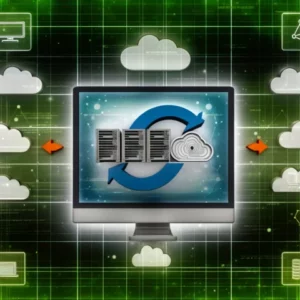If you are planning to get a phone system for your company or small business, chances are that you might have heard about the PBX system. Before getting yourself the system, here is everything you need to know about the PBX phone system.
What you will see?
What is PBX phone system?
The term PBX refers to a Private Branch Exchange. It is a company’s or other organization’s internal telephone network. Users of a PBX phone system can interact over the phone using internal lines. Moreover, they can even make and receive external calls. Call forwarding, call transfer, call queue, auto-attendant, voicemail, and other business telephony functions are often provided by this phone system. PBX systems can use VoIP (Voice Over Internet Protocol) or Analog or Digital Phone Lines to connect. The physical phone line entering your organization divides into numerous lines using a PBX phone system. Thus, enabling you to handle more telephones. The best part is that the user-to-user calls are free.
Connectivity to the telephone network is provided by a combination of hardware components. Trying to set up a PBX is a big job. One or more systems administrators with telecom experience are enlisted by a corporation. Also, you will also need physical space in the office to house the system You can set up closet space or server room for this.
Becoming a Telephone Operator with a PBX
The Plain Old Telephone System, or POTS, is the traditional phone system. It’s based on the building’s tangled pair of cables from the local phone company. POTS is simple, dependable, and hasn’t evolved much over many decades. Using the Public Switched Telephone Network, telephone companies connect calls with others (PTSN). If you are a Verizon subscriber, you can call an AT&T customer over the PSTN. Moreover, calls can be patched over locally. Providing phone service to a business is not cheap. A PBX enables a company to run an internal phone system while using fewer phones. Thus, reducing the bill for the companies.
Voicemail, auto operators, and recorded messages can all be managed using the best PBX systems. This includes everyone in the company’s phone extensions. The PBX has revolutionized the way organizations handle phone calls, providing a major improvement above previous restrictions. PBXs used to be proprietary and difficult to maintain. PBX systems have come a long way in recent years. Calls use Voice over Internet Protocol (VoIP) technology, which means they are no longer reliant on the local telephone company. SIP trunking enables connectivity for a tenth of the cost of analog lines. With an all-digital backbone, PBX systems enable IT leaders to preserve their existing devices. Different company phone numbers are for different extensions. A cloud PBX, on the other hand, combines the best of both worlds with a fully functional phone system.
Benefits for Businesses
Not all companies request to set up a phone system. There must be a compelling reason for them to migrate their phone service to the cloud. A PBX’s outstanding features benefit both large and small businesses. The following are the major reasons why companies utilize a PBX:
- Manage and complete calls according to a pre-determined schedule. In the PBX network tree, you can choose the direction of “branching out” and create your own rules. To minimise exorbitant expenses, operators might restrict or allow international dialling as needed.
- It’s simple to transfer calls between users and departments. Without losing calls, establish and maintain connections. A warm transfer or a cold transfer can be used to successfully transfer calls. You can transfer in either case.
- Customize greetings with recorded remarks that include your company’s preferred music. This tool is a great approach to notify clients about a sale or a problem with their service.
- Set up a call centre to aid in the management of a sales team or customer service department. Despite its high cost, a PBX can delay incoming and outgoing calls due to its physical limits. A cloud-based PBX can manage more calls and route them to the appropriate people or teams.
- Connect several office sites to a single phone system. So, employees can communicate with one another. PBX can utilized to handle call routing instead of maintaining many phone systems.
Types of PBX phone system

Analog
A classic intra-office phone system, the PSTN is connected to it via Plain Old Telephone Service (POTS) connections (public switched telephone network). The PBX uses physical phone lines to conduct phone calls and even fax transmissions. Calls can be made and transferred within the location using an analog PBX phone system. They also use outside lines to handle inbound and outbound calls. Although, analog systems predate the Internet and rely on old copper phone lines for communication. Thus, they are unable to take advantage of many of the modern features found in more complex telephone systems. This includes multimedia services, voicemail conversion to email, and remote working capabilities. You may also need to add more ports and telephone connections to handle extra personnel as your company grows. Traditional PBX systems, however, are self-contained, thus the connection is unaffected if the Internet goes down.
VoIP

A contemporary type of private branch exchange is VoIP or IP PBX. It performs the same functions as a typical PBX but with an array of new features. Furthermore, it is a more cost-effective solution. It employs the Internet protocol instead of conventional phone lines. Voice is turned into data, which is then sent across the Internet, and then back to voice for the receiver. Maintenance and expansion are straightforward with this system. You will also get exposure to unified communications services like BOYD (Bring Your Own Device) mobility. Not only that, you even get video conferencing and messaging, which are not available with analog PBX systems. Furthermore, IP PBX can be used outside of a single location.
Cloud PBX
Pros
- Customizable
- Low monthly cost and no upfront cost
- Advanced calling features
- No physical space or servers needed
- On-demand scalability
- Faster deployments
Cons
- Needs broadband connection
- Needs VoIP phones or a VoIP app
Hosted PBX is another name for cloud PBX. It’s a subcategory of IP telephone. It is connected to a VoIP service provider over the internet. Apart from physical phones and an internet connection, no on-site equipment is required. It is because the service provider takes care of everything. All inbound and outbound calls go through the service provider, who either converts the voice to data packages or transfers the call to a PSTN (Public Switched Telephone Network). You only need a broadband Internet connection to use this system. Multiple telephonic devices, such as office conference phones and smartphones, are supported by this feature. It also comes with a number of advanced features.
On-Premises PBX
Pros
- Customizable
- Low monthly cost
- Does not use interent
- Few calling features
Cons
- High up0front cost
- Slower deployment
- Costly support and maintenance
- Physical hardware and server space required
- Limited scalability
This differs from hosted PBX telephone systems in a few ways. The business telephone system is still managed using voice-over-IP technology. The servers that handle outbound and inbound calls are on site. The accessible functionalities are essentially the same. It connects to the internet, supports mobile devices, and has features like voicemail to email. Although, the disadvantage of being on PBX is that it has a high initial installation and maintenance cost. Companies that opt for this form of phone system will need an IT staff that can keep it up to date. That cost, however, will decrease with time. After the initial expenditures, it protects you from charge increases, resulting in lower monthly expenses. Moreover, companies can also keep their current phone service provider while configuring their network internally with an On-Premises IP PBX.
Benefits of Hosted PBX

If you are a growing business, you can go for the hosted PBX:
- Setup is simple and straightforward.
- Scalable.
- On-site and mobile staff support.
- Conferencing, screen sharing, and instant messaging are all examples of collaboration features.
- There’s no need for expensive hardware or a team of IT experts.
- Easy installation and maintainence.
- Customer support staff will benefit from features that empower them.
- CRM, Microsoft Teams, and other third-party systems integration.
- Furthermore, small enterprises without the cash to invest in telephony infrastructure can benefit from this.
Benefits of On-site PBX
However, here are the advantages of the on-site system PBX:
- Operating costs are low.
- Having the equipment gives you more control.
- Maintaining your telephone company’s connection.
- No monthly, yearly, or subscription costs.
- Furthermore, increased control over the level of security.
How to decide the PBX system needed for your business?
Many business owners will agree that PBX services are a fantastic choice. The decision to use a PBX system for your business is merely the first step. You need to select the type of system you need according to the requirements of your company. Here are some tips:
Infrastructure
The kind of PBX phone system your business requires depends largely on your current infrastructure. Consider these questions before going for one:
- Does the company employ any IT staff?
- Are they familiar with telecommunication fundamentals like SIP trunking?
- What telecom solution are you currently using?
- Which systems do you need to connect to your new telephone system?
- Furthermore, is your business set up in a single location or a number of locations?
Size and Projected Growth
Before getting your business a phone system, ask if you are a small or medium-sized business (SMB) or a larger corporation. The important question is whether the company expanding or contracting. Another deciding factor would be whether you would implement any technology solutions that will affect the number of lines you require. Moreover, you need to consider the type of service you require, or whether you require capabilities such as call forwarding, video conferencing, or support for mobile workers.
Budgets
With the implementation of any service, there will be certain costs. Depending on your needs. A hosted or on-premises VoIP PBX will let you effortlessly add and remove lines at no cost. Although, if you continue with an analog setup, you’ll have to pay for both the physical installation and the new lines.
Operational Model
You need to consider the operational model of your company. Your employees may spend the majority of their time in the office. Or you may have a large number of field workers who require internet access.
Conclusion
PBX Phone Systems are a great investment for your growing business. With a growing number of employees, you would want a phone system to connect them without spending a fortune. PBX system brings together different components to provide connectivity to the network. The Analog PBX system does not depend on the internet, so the connectivity will not get impacted if the Internet goes down. However, if your business is spread into multiple locations, the IP PBX system will work better for you. Whereas, if you don’t have much space for on-site equipment, you can go for the Cloud PBX phone systems.
If you have any questions, you can ask in the comments section below.
Read More!
- iPhone XR Wallet Cases -Best and affordable alternatives!
- Would you be able to use an Apple Watch with Android?
- Use Google Voice to make phone calls and send messages!
- Web Hosting Services- Some basic knowledge you need to have!
















